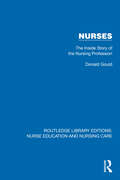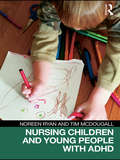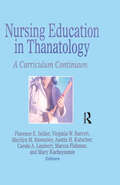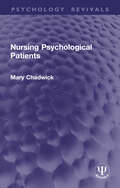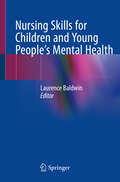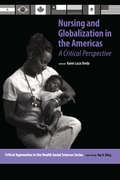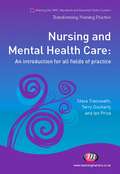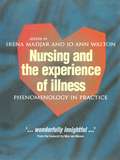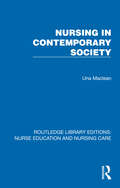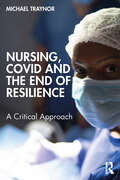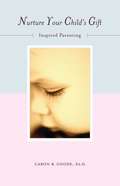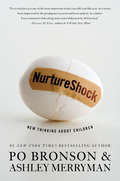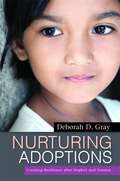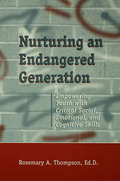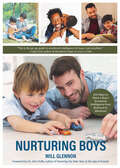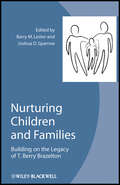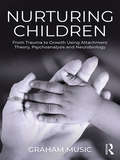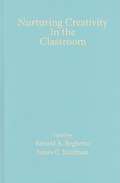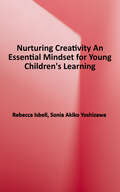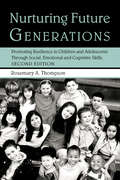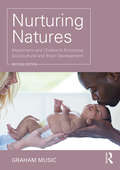- Table View
- List View
Nunca Mais!
by Gabriel AgboDescrição do livro: “E restituir-vos-ei os anos que comeu o gafanhoto, a locusta, e o pulgão e a lagarta, ... e o meu povo nunca mais será envergonhado. E vós sabereis que eu estou no meio de Israel, e que eu sou o Senhor vosso Deus, e que não há outro; e o meu povo nunca mais será envergonhado.” Joel 2:25-27 É tempo de pôr um fim nas coisas que querem parar você. É vontade de Deus eliminar tudo o que quer desviar você dos Seus planos para a sua vida. E você já sabe que o plano dEle para você é que você tenha o melhor da alegria, paz, prosperidade, misericórdia, boa saúde e que tome posse de toda a sua herança. Mesmo que você esteja sob o juízo de Deus, isso poderá ser revertido hoje e você começará a nadar novamente em Sua graça. Também vimos as experiências de outros e a moderna versão israelense de Nunca Mais. Por que eles adotaram este slogan e até onde eles foram para que se cumprisse isso? Certamente, Israel hoje se tornou uma das nações mais poderosas do mundo (Tem o melhor serviço de inteligência – o Mossad e o terceiro melhor exército do mundo) não apenas porque Deus está com eles, mas porque eles também juraram nunca mais permitir que os judeus passassem pelos tratamentos mais desumanos, por dores, por tristezas e pelas mortes que sofreram nos eventos infelizes e evitáveis do século passado. Hoje, eles lideram não apenas a defesa, mas também a agricultura, tecnologia antiterrorista, ciência e medicina. Sim, hoje podemos dizer Nunca Mais! Este livro é, com certeza, uma leitura interessante.
Nurses: The Inside Story of the Nursing Profession (Routledge Library Editions: Nurse Education and Nursing Care)
by Donald GouldNurses now, just as when this book was originally published in 1988, are underpaid and overworked and thousands are leaving the profession every year. But why do many more highly intelligent and well-educated men and women stick to such a difficult and ill-paid job? Donald Gould has tried to discover the answer to this question by interviewing all kinds of nurses. For most the many frustrations and hardships of their jobs are more than out weighted by the immense satisfactions of the daily round. As the stories told in Nurses reveal, the profession provides an opportunity for the exercise of every kind of talent, from the highly scientific skills demanded by intensive care, to ‘making do’ in remote Africa, from easing the approach to death to managing a workforce of thousands.
Nursing Children and Young People with ADHD
by Tim McDougall Noreen RyanADHD is one of the most commonly diagnosed behavioural disorders in children and young people. It is a complex and contested condition, with potential causes and treatments in biological, psychological and social domains. This is the first comprehensive text for nurses and other health professionals in this field. Nursing Children and Young People with ADHD explores the evidence, incorporating and expanding on the new NICE guidelines for practice in this area, to provide an essential knowledge base for practice. The text covers: causes, diagnosis, co-morbidity, user and carer perspectives, assessment, treatment and interventions (including those suitable for use in schools), prescribing and the legal background. An invaluable text for pre-registration student nurses on mental health and children branches, this will also be a useful reference work for post-registration nurses and health professionals seeking evidence-based recommendations for practice.
Nursing Education in Thanatology: A Curriculum Continuum
by Austin H. Kutscher Florence E. Selder Virginia W. Barrett Marilyn M. Rawnsley Carole A. Lambert Marcia Fishman Mary KachoyeanosNursing Education in Thanatology is an excellent source book for planning thanatology courses or for integrating concepts of thanatology into a nursing curriculum. As the formal teaching of thanatology in schools for health care professionals is generally overlooked and ill-defined, many students and professionals will learn to deal with dying and grieving upon their first encounter with death. This practical book will aid educators in planned inclusion of thanatology in curriculum to insure the preparedness of health care professionals in assisting patients and/or their families during an emotionally difficult period. There are many suggestions presented for beneficial methods of integrating thanatology education into existing courses or offering thanatology as a single course for education professionals.A vital resource for inservice coordinators working with clinicians in oncology, hospital staff, and health professionals in community or outpatient health centers, Nursing Education in Thanatology is excellent reading for helping professionals working with elderly people.
Nursing Practice during COVID-19: Preparation, Education and Support
by Waleed Hassan Almalki Kainat Alam Shipra Daniel Abdulaziz AlzahraniThis book highlights the progresses achieved in the role of nurses in the hospital, critical care unit, community field, hospital, and at home for patient care management in SARS-CoV-2 (COVID-19), especially in the South Asia and the Middle East. Nurses and allied health care professionals play a significant role in preventing and treating the infectious disease pandemic and epidemic that is COVID-19 and, on the front lines of treatment, they suffer an inescapable health risk due to the fact that they must live with, encounter, and accept the hazard of dealing with developing respiratory illnesses. Nurses also endure significant stress, burden, and mental health concerns as a result of worldwide respiratory epidemics. Because of this, nurses require ongoing assistance and training in order to increase their crisis preparation and efficacy while also coping with psychological issues and ensuring their own well-being. This book reflects the experience of Indianand Saudian nurses, develops on COVID-19 stress and challenges and informs on the technologies employed. Nurses' experiences caring for patients with COVID-19 around the world are scarcely documented. The research that has been done so far have mostly focused on the physical and psychological effects of stress. This expands on the role of nurse managers and hospital administration with key stakeholders emphasizing the need of providing support for nurses in their role, especially considering that the positive leadership responsibilities of nurse managers are highly regarded by nurses.
Nursing Psychological Patients (Psychology Revivals)
by Mary ChadwickOriginally published in 1931, Nursing Psychological Patients was ‘a book written by a nurse for the purpose of increasing the interest of members of the nursing profession in psychological diseases, by pointing out that they require the nurses’ serious attention and offer an important field for professional skill. The opening chapters summarize former opinions and earlier methods of treating this group of human sufferings, and trace the subsequent growth of knowledge and the development of modern forms of treatment. Later chapters describe the more familiar neurotic troubles, their symptoms and the difficulties they present to the nurse, and attempt, by increasing her understanding, to render her more efficient in meeting wisely the problems which she encounters.’ Today it can be read in its historical context.This book is a re-issue originally published in 1931. The language used is a reflection of its era and no offence is meant by the Publishers to any reader by this re-publication.
Nursing Skills for Children and Young People's Mental Health
by Laurence BaldwinThis book focuses on those nursing skills that are truly valued and needed by children and young people with mental health problems. Whilst other books have chiefly focused on mental health conditions and treatments, this book moves away from this formulaic approach and considers what children and youth themselves need most from health professionals. It shows why nursing skills are among the most precious values for patients. This focus on therapeutic relationships, establishing trust-based forms of nursing, and empowering children and young people to develop into healthy and resilient young adults has largely been neglected, despite the feedback from those who urgently need help but often struggle to find it, or are wary of seeking help and reluctant to engage. This book focuses on the places where nurses encounter young people and seek to help them. It examines the role nurses play in specialist child and adolescent mental health settings (such as in-patient and community, as psychotherapists, and on self-harm teams) and where paediatrics nurses work with troubled young people (in emergency departments, paediatric wards and primary care). It also considers two specific areas, namely eating disorder services and consent-seeking, that could benefit from nursing skills that are currently undervalued, but are in fact invaluable. Its focus on those skills that nurses already have, but may not be consciously using, will make this book uniquely appealing to all nurses who work with children and young people with mental health problems, regardless of the setting, and an essential guide for students and experienced professionals alike.
Nursing and Globalization in the Americas: A Critical Perspective (Critical Approaches in the Health Social Sciences Series)
by Karen Lucas Breda Ray H EllingNursing is vital to millions of people worldwide. This book details the ebb and flow of its fascinating history and politics through case studies from Brazil, Argentina, Chile, Colombia, Mexico, Canada, and the United States. Authors from across the Americas share findings and explore new thinking about Western hemisphere-specific issues that affect nursing and health care. Using economic globalization as an overarching framework, these cross-national case studies show the strengths and contradictions in nursing, elucidating common themes and examining successes. The partnership of authors shapes a collective understanding of nursing in the Americas and forms a basis for enduring hemisphere-wide academic exchange. Thus, the book offers a new platform for understanding the struggles and obstacles of nursing in a climate of globalization, as well as for understanding nursing's richness and accomplishments. Because politics, economics, health, and nursing are inextricably linked, this volume critically explores the intersections among political economies and nursing and health care systems. The historical and contextual background allows readers to make sense of how and why nursing in the Americas has taken on its present form.
Nursing and Mental Health Care: An introduction for all fields of practice (Transforming Nursing Practice Series)
by Terry Docherty Joseph Franks Reuben Pearce Steve TrenowethImproving mental health for all is increasingly important in nursing as more people suffer from mental health issues, ranging from stress through to diagnosed illnesses. It is crucial that all nurses, not just mental health nurses, are aware of mental health problems and the impact these have on patients, families and carers. This book gives a clear overview of mental health in nursing, relevant for all fields of practice. It explains the core features of the mental health nursing field, and explores aspects of mental health that every nurse should understand in order to provide holistic care to their patients.
Nursing and The Experience of Illness: Phenomenology in Practice
by Irena Madjar Jo Ann WaltonNursing and the Experience of Illness encourages nurses to reflect on the experience of their patients, in order to improve their practice and to develop an individualised approach to care. Vivid case studies present real nursing encounters and offer a user-friendly model for independent research by the reader.This accessible introduction to phenomenology for nurses explains what has become one of the most widely used qualitative research methods within healthcare and covers topics including:*phenomenology in nursing*critical illness and intensive care*breast cancer and mastectomy*living with schizophrenia. Building on the work of key nursing theorist Patricia Benner, this readable way in to qualitative research in nursing will be suitable for both undergraduate and postgraduate nursing students.
Nursing for Wellness in Older Adults (Seventh Edition)
by Carol A. MillerThis 7th edition of Nursing for Wellness in Older Adults prepares your students to provide effective, wellness-oriented nursing care for older adults in any healthcare setting. The book provides comprehensive, easy-to-understand coverage of the theory and practice of gerontological nursing, addressing both physiologic and psychosocial aspects of aging, as well as broader issues such as cultural competence and legal and ethical concerns.
Nursing in Contemporary Society (Routledge Library Editions: Nurse Education and Nursing Care)
by Una MacleanOriginally published in 1974, the main aim of this book is to help nurses to a deeper understanding of those whom they are learning to serve. The author explains the relevance of sociology to contemporary nursing, showing that patients cannot be fully understood or properly treated without a knowledge of the social background of their complaints, and without knowing something about the families upon whom they depend and who are dependent upon them. A sociological perspective can also help nurses in regard to their position: nurses play a wide variety of roles in a wide range of situations. A chapter is devoted to relationships within hospitals, particularly with doctors. The book also discusses developments in community care and in relation to general practice.
Nursing in Prison
by Joanne BrookeThis Textbook addresses a gap in the market, as currently there are no contemporary books exploring nursing within a prison setting. The main focus is the provision of healthcare in the Prison Service of England and Wales, although examples will also be drawn from the United States of America and Australia. Healthcare within prison settings has changed remarkably to address the needs of the changing prison populations. Thus, this text is clearly structured to support student nurses to understand the role of the nurse within prison and how the different specialities of nursing are applied in this unique setting. This textbook provides an overview of the context of prison, prisoners, and healthcare, as well as the experiences of nurse specialists who work in this field, including adult, mental health, and learning disability nurses across primary care, mental health services, substance misuse and end-of-life care. This volume is informative for both undergraduate student nurses and for qualified nurses and dispels many myths regarding working as a nurse in a prison. Each chapter is written by experts within the field, including nurses who have worked or still working within the prison setting. An important objective of this work is to inform student nurses of the possibility and opportunity of a nursing career within a prison setting.
Nursing, COVID and the End of Resilience: A Critical Approach
by Michael TraynorThis book looks at the way in which resilience has been promoted as a resource for nurses during the COVID-19 pandemic and addresses its limitations as a response to the potential trauma of working in intense healthcare contexts. Traynor examines the nature of trauma and moral distress in nursing work, which predates the most recent pandemic that brought it into sharp relief, and links this to discussions of resilience in nursing. He examines differing understandings of trauma, identifying and detailing approaches to dealing with it and its aftereffects.In a wide-ranging book that draws together critiques of the happiness industry and PPE scandals, this book lays bare government and managerial reactions to the pandemic, alongside individual, sometimes harrowing, accounts. Its author sets out the impact of working during COVID-19 on the profession and its members in terms of support, solidarity and fragmentation.Drawing on a critical analysis of responses to the pandemic from the government, regulatory bodies, the NHS, and the media, along with primary research with nurses and others who have worked through the pandemic, this book is a vital contribution for all those interested in resilience, trauma, well-being and workforce development in nursing.
Nurture Your Child's Gift
by Caron B. GoodeWhat if the purpose of living is to fulfill a vision or dream we brought with us into this life? Any parent or person working with children knows that each child, when nurtured and encouraged, develops according to his or her unique temperament and abilities. Nurture Your Child's Gift asks us to see our children's unique gifts and shows us how we can encourage their dreams. Nurture Your Child's Gift: Describes recent mind/body advances from medicine, sports, psychology, and education and shows how to apply them directly to developing children's self-esteem, empowerment, and wholeness Provides holistic applications of breathing, music, creative problem solving, self-dialogue, affirmation, and imagery Includes self-reflection exercises that enable parents to nurture their own gifts as they work to encourage their children's
NurtureShock: New Thinking About Children
by Po Bronson Ashley MerrymanIn a world of modern, involved, caring parents, why are so many kids aggressive and cruel? Where is intelligence hidden in the brain, and why does that matter? Why do cross-racial friendships decrease in schools that are more integrated? If 98% of kids think lying is morally wrong, then why do 98% of kids lie? What's the single most important thing that helps infants learn language? NurtureShock is a groundbreaking collaboration between award-winning science journalists Po Bronson and Ashley Merryman. They argue that when it comes to children, we've mistaken good intentions for good ideas. With impeccable storytelling and razor-sharp analysis, they demonstrate that many of modern society's strategies for nurturing children are in fact backfiring--because key twists in the science have been overlooked. Nothing like a parenting manual, the authors' work is an insightful exploration of themes and issues that transcend children's (and adults') lives.
Nurturing An Endangered Generation: Empowering Youth with Critical Social, Emotional, & Cognitive Skills
by Rosemary ThompsonFirst published in 1998. Routledge is an imprint of Taylor & Francis, an informa company.
Nurturing Boys: 200 Ways to Raise a Boy's Emotional Intelligence from Boyhood to Manhood
by Will GlennonA nationally recognized parenting expert and spokesperson for fathers, Glennon presents straightforward and well-researched ways both to nurture young men and, in turn, to teach them how to be nurturing.
Nurturing Children and Families
by Joshua D. Sparrow Barry M. LesterThis volume celebrates the work and influence of T. Berry Brazelton, one of the world's foremost pediatricians, by bringing together contributions from researchers and clinicians whose own pioneering work has been inspired by Brazelton's foundations in the field of child development. Includes contributions from experts influenced by the work of Brazelton from a wide range of fields, including pediatrics, psychology, nursing, early childhood education, occupational therapy, and public policyProvides an overview of the field of child development, from the explosion of infant research in the 1960s to contemporary studiesOutlines the achievements and influence of T. Berry Brazelton, one of the world's foremost pediatricians, and his lasting influence in continuing research, practice, and public policy
Nurturing Children: From Trauma to Growth Using Attachment Theory, Psychoanalysis and Neurobiology
by Graham MusicNurturing Children describes children’s lives transformed through therapy. Drawing on decades of experience, internationally respected clinician and trainer Graham Music tackles major issues affecting troubled children, including trauma, neglect, depression and violence. Using psychoanalysis alongside modern developmental thinking from neurobiology, attachment and trauma theory and mindfulness, Music creates his own distinctive blend of approaches to help even the most traumatised of children. A mix of personal accounts and therapeutic riches, Nurturing Children will appeal to anyone helping children, young people and families to lead fuller lives.
Nurturing Creativity in the Classroom
by James C. Kaufman Ronald A. BeghettoNurturing Creativity in the Classroom is a groundbreaking collection of essays by leading scholars, who examine and respond to the tension that many educators face in valuing student creativity but believing that they cannot support it given the curricular constraints of the classroom. Is it possible for teachers to nurture creative development and expression without drifting into curricular chaos? Do curricular constraints necessarily lead to choosing conformity over creativity? This book combines the perspectives of top educators and psychologists to generate practical advice for considering and addressing the challenges of supporting creativity within the classroom. It is unique in its balance of practical recommendations for nurturing creativity and thoughtful appreciation of curricular constraints. This approach helps ensure that the insights and advice found in this collection will take root in educators' practice, rather than being construed as yet another demand placed on their overflowing plate of responsibilities.
Nurturing Creativity: An Essential Mindset for Young Children's Learning
by Rebecca Isbell Sonia Akiko YoshizawaInspiring and supporting innovative thinking Young children have a great capacity for creativity that thrives when nurtured. Early childhood teachers have the opportunity to inspire children’s innovative thinking and doing by Including creative opportunities across all domains of learning- Designing a beautiful space that encourages children’s experimentation and play- Extending children’s learning and challenging their thinking- Documenting children’s thought processes and displaying their work- Involving families and the community in children’s creative endeavors- Reflecting on your beliefs and practices about creativity and nurturing your creativity Learn how to support children as they problem-solve, explore and share new ideas, and collaborate with others, and watch their confidence and capableness grow.
Nurturing Future Generations: Promoting Resilience in Children and Adolescents Through Social, Emotional and Cognitive Skills
by Rosemary A. Thompson, Ed.D.The statistics are pretty grim - young people face an ever increasing tide of poverty, alcohol and drug abuse, violence, suicide, and family dysfunction. Society's response has been slow. Too many young people do not receive consistent, positive, and realistic validation of themselves from those adults on whom they depend. Nurturing Future Generations goes beyond the stilted rhetoric on the problems of youth and the dilemma for society by outlining specific treatment intervention and prevention strategies that address the full spectrum of dysfunctional behavior. It introduces structured intervention strategies for school and community collaboration, with an emphasis on remediation and treatment. Educators and helping professionals will find counseling strategies and psychoeducational techniques that focus on primary prevention. These primary prevention strategies are supported by an understanding of critical social, emotional, and cognitive skills. The new edition provides an increased focus on the positive aspects of youth development, with less emphasis placed on the dysfunctional side of youth behavior. The book addresses emerging research on resiliency and includes increased coverage of best practices for use with troubled youth. A new chapter on LGBT youth issues has been added, and the existing chapters have been substantially revised and updated. The author has reorganized sections within each chapter, adding to the readability and flow of the book, making it more useful as both a professional reference and supplemental text.
Nurturing Natures: Attachment and Children's Emotional, Sociocultural and Brain Development
by Graham MusicThis new edition of the bestselling text, Nurturing Natures, provides an indispensable synthesis of the latest scientific knowledge about children’s emotional development. Integrating a wealth of both up-to-date and classical research from areas such as attachment theory, neuroscience developmental psychology and cross-cultural studies, it weaves these into an accessible enjoyable text which always keeps in mind children recognisable to academics, practitioners and parents. It unpacks the most significant influences on the developing child, including the family and social context. It looks at key developmental stages from life in the womb to the pre-school years and right up until adolescence, covering important topics such as genes and environment, trauma, neglect or resilience. It also examines how children develop language, play and memory and, new to this edition, moral and prosocial capacities. Issues of nature and nurture are addressed and the effects of different kinds of early experiences are unpicked, creating a coherent and balanced view of the developing child in context. Nurturing Natures is written by an experienced child therapist who has used a wide array of research from different disciplines to create a highly readable and scientifically trustworthy text. This book should be essential reading for childcare students, for teachers, social workers, health visitors, early years practitioners and those training or working in child counselling, psychiatry and mental health. Full of fascinating findings, it provides answers to many of the questions people really want to ask about the human journey from conception into adulthood. .

